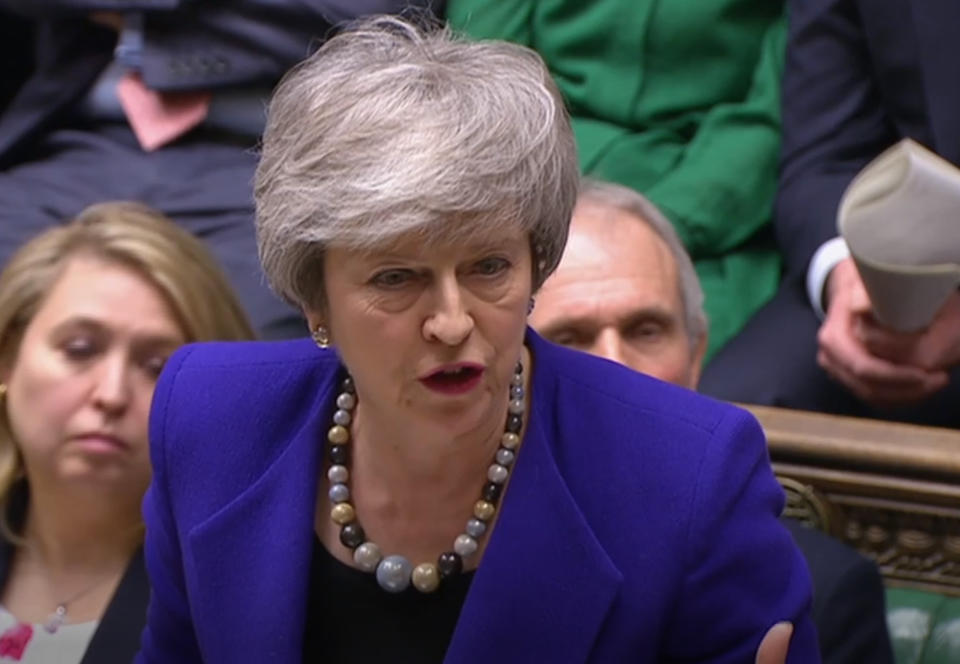The most likely outcome for Brexit is now a permanent Customs Union, experts say

A permanent Customs Union is the most likely outcome of the ongoing Brexit negotiations, experts now believe.
Theresa May enjoyed a rare victory earlier this week when MPs supported a proposal to reopen the Withdrawal Agreement and replace the Northern Ireland backstop with ‘alternative arrangements’.
Following discussions with “all sides”, Mujtaba Rahman of Eurasia Group has put forward a revised basecase which puts a deal over a permanent Customs Union way ahead of the alternatives at 55 per cent.
Mr Rahman said: “For the first time since Brexit, it is possible to see the emergence of the ‘sustainable Commons majority’ that the EU is seeking taking shape over a permanent Customs Union.”
Support from Labour MPs would be crucial to this, he said, “to which Jeremy Corbyn would turn a blind eye, allowing him to maintain his ‘constructive ambiguity’ that avoids alienating Leave or Remain voters”.
The probability of another referendum now stands at a slim 20 per cent, according to Mr Rahman, though this is more likely than a general election (15 per cent) or no-deal (10 per cent).
The big problem facing Theresa May’s Government is the Irish backstop.
The Prime Minister has said she will go back the Brussels and negotiate a change to the Withdrawal Agreement in which the UK would come up with ‘alternative arrangements’ to the current backstop deal.
However, the EU has remained resolute and said the only was the backstop can be removed is if the UK moves its position closer to a customs union.
Quite whether Mrs May can get such an arrangement through Parliament, however, is unknown. Many centrist MPs see no-deal Brexit as a doomsday scenario and, when push comes to shove, may be moved to accept a softer Brexit than they would prefer.
On Friday, International Trade Secretary Liam Fox became the latest Cabinet minister to suggest Brexit may need to be delayed if there is not time to pass the relevant laws before March 29.
Speaking in Westminster, Dr Fox said: “There would be a huge difference between an extension to Article 50 because we hadn’t reached an agreement, or a short delay because we had reached an agreement and needed the legislation to implement it…
“We can get our domestic legislation through if we quickly reach an agreement with the European Union and that’s in everyone’s interest.”

 Yahoo News
Yahoo News 
